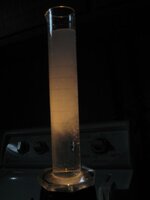Bodfish Mike
Hero Member
- Dec 12, 2014
- 503
- 1,365
- Detector(s) used
- Garrett , Whites
keene puffer drywasher , Keene A51 Sluice
- Primary Interest:
- Other
Ok I know gold floats and about surface tension -- jet dry ect.
But it seems like gold sometimes floats first before the black sand and other heavies anybody else see this and if so have you got a clue as to why.
Thanks Mike
But it seems like gold sometimes floats first before the black sand and other heavies anybody else see this and if so have you got a clue as to why.
Thanks Mike
Amazon Forum Fav 👍
Upvote
0





